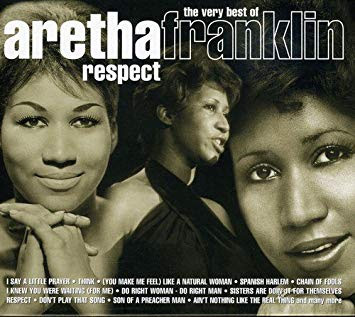Choosing a Business Entity: Minding your Business
In July, Immortal Works Publishing of Salt Lake City, Utah accepted my debut thriller novel, The Midnight Call, for publication. As a writer, this is a dream come true, and as an attorney, it raised certain questions about how to handle the business side of writing.
We all know that there is the writing and the business of writing. The former is act of creative expression, where the thoughts fly out of our heads quicker than we can capture them on the page. The later is the dollars and sense of the writing biz. It’s the monetary investment in your craft - joining organizations like Sisters in Crime, taking classes and seminars, attending conferences, hiring an editor, self-publishing expenses, book promotion and touring. It’s also the Holy Grail – getting a publishing deal and receiving royalties.
For many years, I’ve been writing a theater guide series, SEATS : NEW YORK, but the business of non-fiction writing is a completely different animal then fiction. I’ve experienced the process of trying to figure out what kind of business entity would be best suited for me. In this article, we’ll review they types of business entities so that you can make an informed decision when you mind your business.
Many authors wonder what legal form their writing business should take. Should it be a sole proprietorship, a partnership, a corporation or an LLC?
Sole Proprietorship
As you’re reading this article, you are a sole proprietorship. Whether you write in your real or pen name, you are the owner of your own writing enterprise. All of your expenses and profits are automatically income and expenses for you, personally. Also, if you get sued, you are personally liable as well.
The upside to a sole proprietorship is that it is absolutely free. If you are using a pen name, you could file a Certificate of Doing Business with your County Clerk to protect that name. For example, “J.K.Rowling d/b/a/ Robert Galbraith,” is a DBA, although she’s undoubtedly protecting her vast empire through corporations and subsidiaries.
Even if you’re not J.K. Rowling, and your making $50K a year from your writing, then a corporation or LLC might be helpful.
Corporation
What is a corporation? It’s an entity created by filing a Certificate of Incorporation with the Division of Corporations of your state. In my case, it would be the New York State Department of State, Divisions of Corporation, State Records and UCC. Here is the link: https://www.dos.ny.gov/corps/buscorp.html#certinc Forms are available on the website to create corporations online for a minimal filing fee. In addition to the Certificate, you would create a business with by-laws, minutes, directors and issue shares to your company. All shareholders would share in the profits and losses of the writing business as well as the management of the operation. Can you imagine getting in on the ground floor of the Pottermore empire?
If you hit the big time and receive a fantastic advance, a few good reasons for incorporating are for estate planning purposes or to immediately shift income to family members in lower tax brackets, or to raise capital for projects like a theme park or movie based on your book.
There are two types of corporations: “C” Standard corporations, like most companies on the stock exchange or sub-chapter “S” corporations which is a “flow through” entity so that income is treated like personal income. “C” corporations are taxed twice – once when the business when it earns income and, again, when the shareholder when the income is disbursed to them. With the additional IRS required tax filings, corporations can be an expensive way to operate your writing business. For a deeper discussion of taxes and bookkeeping, check out The Writer’s Legal Guide: An Authors Guild Desk Reference at www.authorsguild.org.
In my situation with SEATS, I had a small research and graphic art team working with me, had made investments in software and had inherited the franchise from my father, Sandy Millman. SEATS was really a family affair, so we formed a Sub-Chapter S corporation. For a while, SEATS was a bestseller for Hal Leonard Publishing, but over time, royalties dwindled and it became expensive to maintain the entity. Each year we had burdensome corporation tax filings with little income. Ultimately, after consulting with our accountant, we dissolved the corporation, but it’s had served it purpose at the time.
Limited Liability Company
Another choice is an LLC or Limited Liability Company, which is similar to a partnership without certain IRS restrictions like a corporation. In New York, you can create an LLC with the Article of Organization forms available online at https://www.dos.ny.gov/corps/llccorp.html, but take notice of the publication requirements. A notice of the formation of an LLC must be published in the newspaper as required by statute. An LLC can be organized with one or more members, and insulates the members from personal liability. Like a Sub-Chapter S corporation, an LLC is a “flow through” mechanism where income or loss flows directly to the writer or partners.
Partnership
In contrast, a partnership is a sole proprietorship with more than one partner. It is extremely flexible, often formed with a handshake. However, it is advisable to put your agreement down on paper, just in case you split ways. I’ve always advised clients who are creating a partnership to put their agreement in writing so that they will remain friends in the future. There’s nothing more heartbreaking than losing a friend or family member over a dispute concerning money, as many plots have described. Irwin Shaw’s Rich Man, Poor Manand Cynthia D’Aprix Sweeney’s The Nest, are two good examples of familial contention over the mighty dollar.
With the newest chapter in my writing career, I’ve opted for an LLC. For tax purposes, it was easier to organize my accrued writing expenses as a separate entity. This time, the bookkeeping will be simplified when it comes to April 15th. And when the royalty checks being to arrive, I’ll be all set.
Which entity is best for you? The decision as to whether to become a sole proprietorship, LLC, partnership or corporation shouldn’t be taken lightly. It depends upon your professional goals, income, desire for control, and estate and tax planning, just to name a few considerations. If you’re an emerging writer –take it slow. It’s rarely cost effective to rush into a corporation.
I hope that my personal experiences have provided insight into the benefits and burdens of the business of writing. As you know, each writer’s situation is different, so it always best to seek professional advice from a trusted tax professional and attorney to help you mind your business.




Comments
Post a Comment